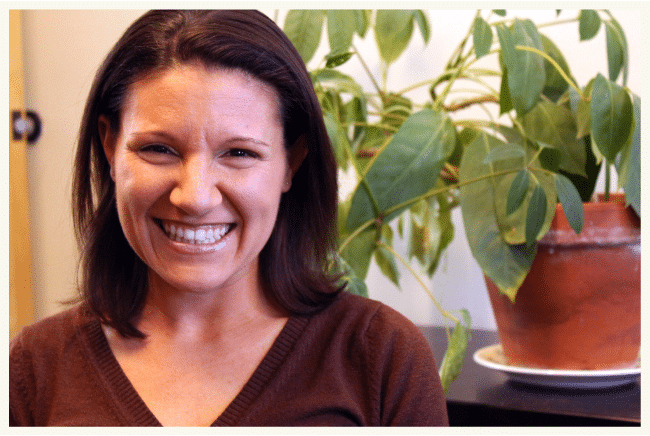April 21, 2020

Carrie Scrufari arrived at Vermont Law School in 2014 as a Food and Agriculture LLM Fellow. She spent the next two years working in the Center for Agriculture and Food Systems (CAFS): building resources for farmers, studying, and publishing extensively in academic journals. We caught up with Scrufari—who is now associate general counsel at the Food and Drug Administration (FDA)—to learn more about her time at VLS and how it served as a springboard into a food law career.
Q. Why Vermont Law School?
A: I pursued an LLM Fellowship in food and agriculture law at VLS because I knew I wanted to be part of the good food movement, and I thought Vermont’s program gave me the best chance at participating in this arena.
Q. What were your favorite classes?
A: While at VLS, I took classes in food law (I loved Federal Regulation of Food Law and Policy), water law (thoroughly enjoyed Water Resources Law), and environmental law (relished Land Use Law). I primarily worked on the Farmland Access Project (now the Farmland Access Legal Toolkit) and the National Gleaning Project at CAFS. The Farmland Access Project explored ways to promote stable and equitable land tenure for farmers, especially new and smaller farmers. The National Gleaning Project sought to address issues involving food waste and hunger and explored best practices for reducing both these social ills.
My coursework and project work provided me with an analytical lens through which to view current events in the world related to our food system, and this directly impacted my scholarship. I started writing about issues that I was interested in and curious about—writing is a great way to learn and think deeply about important issues.
Q. What have you been up to since graduating?
A: My experience at VLS helped prepare me for my current position as associate chief counsel with the Food and Drug Administration through the coursework I completed. By far, the most valuable course was Professor Laurie Beyranevand’s Federal Regulation of Food Law and Policy. We took a deep dive into the Federal Food, Drug, and Cosmetic Act, especially the statutory provisions related to adulterated and misbranded food and dietary supplements. I work with this statute and these specific provisions every single day in my current position, especially when reviewing warning letters, import alerts, congressional responses to constituents, commissioner briefings, and when writing legal memos. I came into my position knowing this important statute existed, where to find the relevant code sections, and which sections applied to the situations I encountered. I believe this knowledge allowed me to hit the ground running at FDA so that I could begin serving the public interest from day one on the job.
Q. What memories stand out from your time at VLS?
A: What is most memorable about my time at VLS, in addition to all the unique classes I took and how much I loved my coursework and project work, is the culture in which I was able to complete this work. VLS is a unique and special place, with faculty who care deeply about the world and their students and who are working to be a force of positive change. My fellow students and colleagues were as committed and passionate as I was about the food system and environmental issues, which made for even richer learning. Every day, I was acutely aware of how grateful I was to be there.
Many law students ask me the same question I always asked, which is, “How do I become a good food law attorney?” My answer is the same one that many wise lawyers once gave to me, which is this: “Learn how to be a good attorney first.” I knew early in my legal career that I wanted to have an environmental and food focus to my practice, but I did not jump into that world immediately after graduating from law school. I completed two clerkships, a fellowship, and practiced in the field of energy law before being able to practice in my chosen field—but the skills and knowledge I gained in those other positions are helping me to be successful now. The path may be long and winding, but each curve has valuable lessons in it—and I’m grateful for mentors along the way who helped me to grow from all the many paths I traveled on to finally arrive in this position. Be curious about every situation you are in—you never know what you can learn that will someday later be of value to you and to the world.
I’d also like to encourage new students and attorneys to never be dissuaded from pursuing a dream, a path, or a course of action regardless of how crazy or insane it seems if it is what you are most passionate about. As John Waters said, “Use your insanity to get ahead.” VLS was a place where I could indulge my passion for food and health when the notion of being a food law attorney seemed far-fetched. And for that I will be forever grateful.
I’d like to close with a quote from Michele Solomon that has meant so much to me over the years while I was working to find my way to my dream job: “Trust that there is no such thing as a wrong choice, as nothing is forever. Make plenty of twists and turns along the way. Your career will find its own way and it will turn out fine. It’s an exciting time to be in this field!” These words were so true for me and I hope that they ring true for all aspiring environmental and food law students and attorneys.